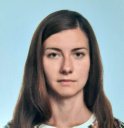Joint Institute for Nuclear Research is a
prestigious institution university
established in 1956 in Russia. It is represented
by 197 scientists in the AD Scientific Index. The
university’s scientists are particularly concentrated in
Natural Sciences (85 scientists), Engineering & Technology (11 scientists), and Medical and Health Sciences (1 scientists).
* Total H Index Rankings
Ranking Based
On Selection :1

Radiation thermophysics of solids states materials
Positron annihilation lifetime spectroscopy
H-Index Metrics
Total
Last 6 Years
Last 6 Years / Total
23
22
0.957
* Total H Index Rankings
Ranking Based
On Selection :2

material science
H-Index Metrics
Total
Last 6 Years
Last 6 Years / Total
10
9
0.900
* Total H Index Rankings
Ranking Based
On Selection :3

Polymers
Material Science
Radiation Chemistry
Swift Heavy Ion Irradiation
Nanocomposites
H-Index Metrics
Total
Last 6 Years
Last 6 Years / Total
3
3
1.000
* Total H Index Rankings
Ranking Based
On Selection :4

Physics
Radiation Material Science
Positron Annihilation Spectroscopy
H-Index Metrics
Total
Last 6 Years
Last 6 Years / Total
3
3
1.000
* Total H Index Rankings
Ranking Based
On Selection :5

Positron annihilation spectroscopy
DFT calculation
material science
H-Index Metrics
Total
Last 6 Years
Last 6 Years / Total
2
2
1.000
Matlab N. Mirzayev
H-Index Metrics
Total
Last 6 Years
Last 6 Years / Total
23
22
0.957
Radiation thermophysics of solids states materials
Positron annihilation lifetime spectroscopy
Ekaterina Korneeva
H-Index Metrics
Total
Last 6 Years
Last 6 Years / Total
10
9
0.900
Pinaeva Uliana
H-Index Metrics
Total
Last 6 Years
Last 6 Years / Total
3
3
1.000
Polymers
Material Science
Radiation Chemistry
Swift Heavy Ion Irradiation
Nanocomposites
Samir F. Samadov|S.F. Samadov
H-Index Metrics
Total
Last 6 Years
Last 6 Years / Total
3
3
1.000
Physics
Radiation Material Science
Positron Annihilation Spectroscopy
Nguyen Vu Minh Trung
H-Index Metrics
Total
Last 6 Years
Last 6 Years / Total
2
2
1.000
Positron annihilation spectroscopy
DFT calculation
material science

